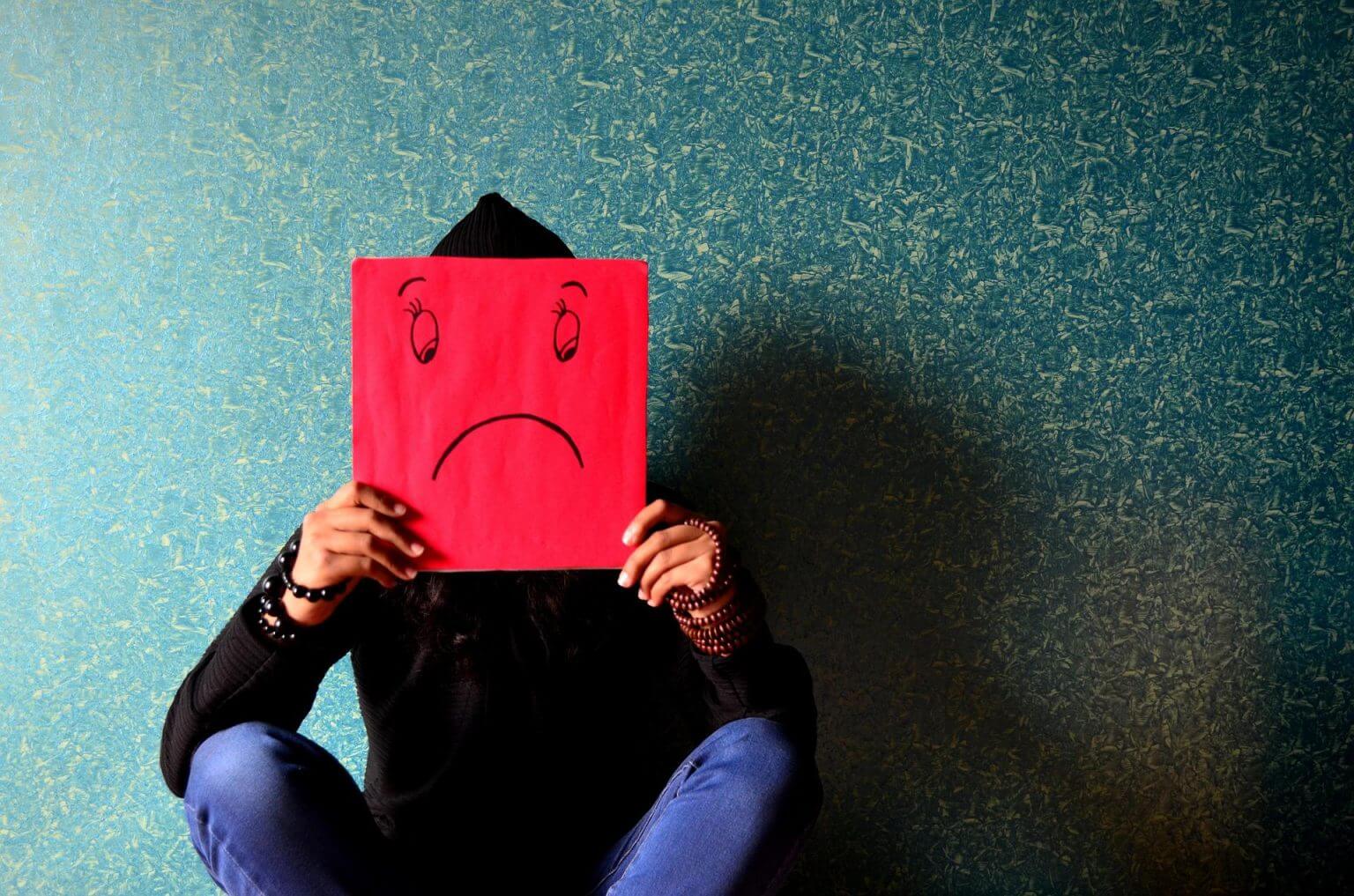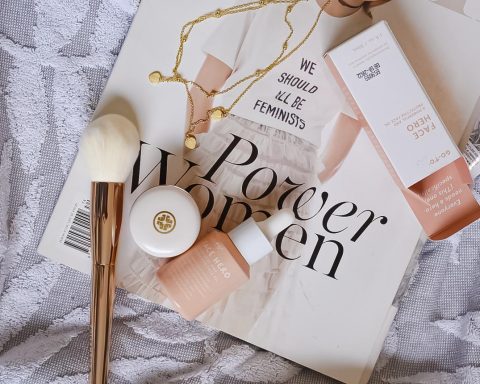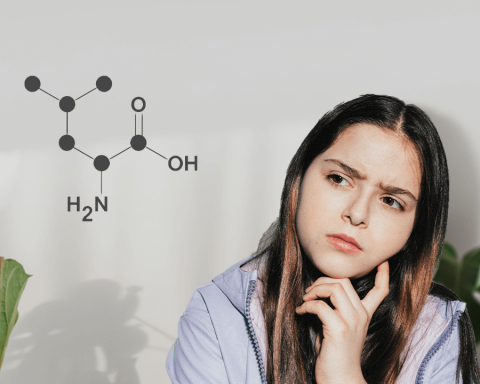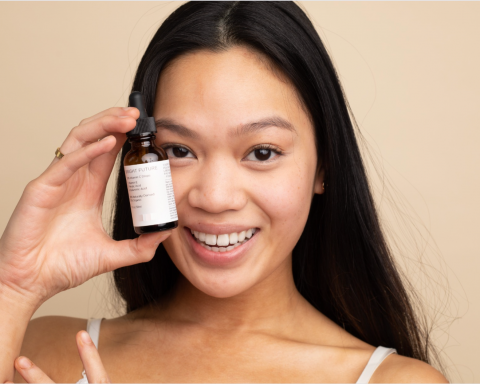It’s common to hear people say “Smiling makes you look younger” or “Depression makes you look older”. Is this true? Well, you may think that depressed people don’t laugh that much, they have dejected looks, or they move around slowly, they appear as if they are older than their age. However, other than this illusion, there is a biological reason behind this.
Before jumping to it, let’s see what exactly depression is.
Depression, a common illness worldwide, is characterized by constitutional symptoms of either depressed mood or loss of interest in pleasurable activities and additional symptoms like weight gain/loss, insomnia/hypersomnia, loss of energy, and inappropriate guilt nearly all day.
Why Does Depression Occur?
Many studies reported mainly two factors take the upper hand, although many factors interact to result in depression, the biological and psychosocial factors. [1] The biological factor states depression is the consequence of disturbance in the neurobehavioral systems, neural circuits, and more intricate neuroregulatory mechanisms. There can be a genetic predisposition for this.
The psychosocial factor states stressful life events and certain personality traits predispose us to depression.
So, How Does Depression Affect One’s Look?
The effect of depression may extend beyond a person’s emotions and mental health. It can also affect a person’s physical health.
Premature Aging
Every trait of our body is encoded in our DNA, including how our skin behaves. At the end of the DNA molecule, there are little protective caps called telomeres, which protect the chromosome from being frayed or tangled. Each time a cell divides, the telomere becomes shorter and shorter. Eventually, they become so short that the cell can no longer divide successfully, and the cell dies.
According to a study[2], depressed people have DNA that is 8 months older than that of the average without depression. Older DNA means shorter telomere and shorter telomere means older body, older look, and older skin.
In another study[3], women with the highest perceived stress had telomeres at the same length as women who were a decade older. Meaning stress ages us not just psychologically but also physically.
Apart from the epigenetic mechanism, depression will increase the level of stress hormones in the body, as it’s a stressful condition and most of the time associated with anxiety. These stress hormones, main cortisol, can mess up your looks in many ways.
Wrinkles
Wrinkles are creases or ridges in the skin. They are the result of loss of skin elasticity. As people age, skin cells divide more slowly and the middle part of the skin, the dermis, begins to thin. The dermis is composed of collagen, elastic fibers and fibroblasts. It makes up the bulk of the skin & provided its pliability, elasticity, & tensile strength. As this layer thins out and the network of elastic fibers unravels, creases are created on the surface.
Depression, by its effect on the telomere, speeds up the formation of wrinkles and makes us look older.
In addition, cortisol, the stress hormone associated with depression, inhibits the synthesis of collagen. This slows the skin regeneration process and leads to dry, thin, wrinkled skin.
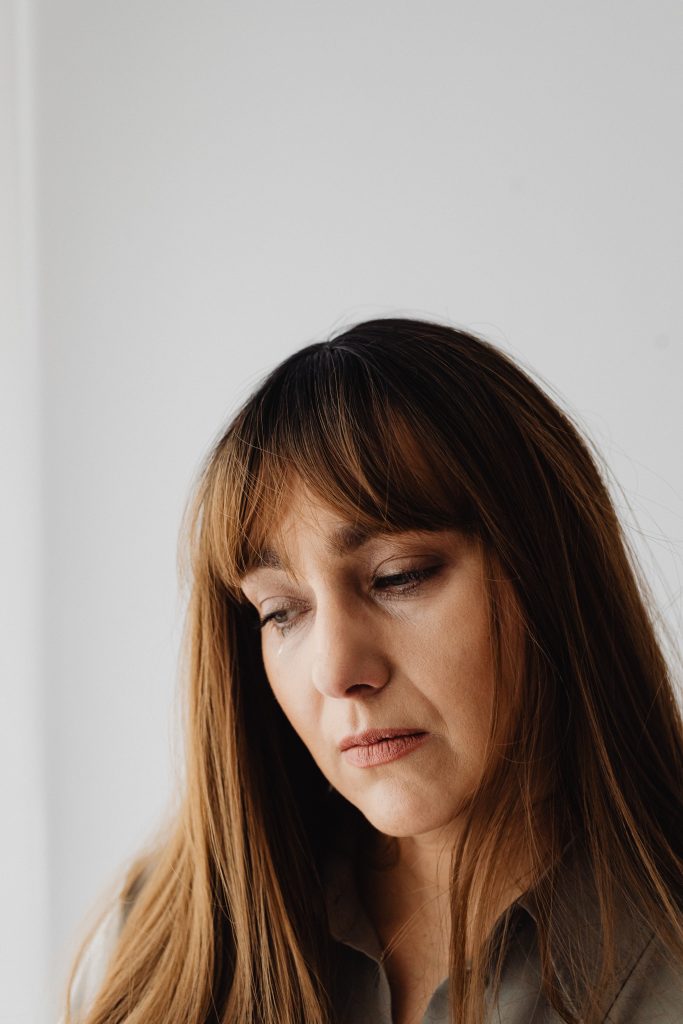
Acne, Eczema, and Breaking Out
High Cortisol that results from depression or any other stressful condition, prompts the skin to produce more sebum (oil from the sebaceous gland). The additional oil clogs the pores and leads to breakouts. Additionally, chronic stress leads to inflammation, which not only prevents acne from healing, but can lead to flare-ups of skin conditions such as rosacea, eczema or psoriasis.
Under-eye Bags
Depression causes insomnia. When you don’t get adequate sleep, your blood vessel dilates and blood flow increases. The skin under the eye is thin normally and cortisol makes it much thinner, this leads to under-eye bags.
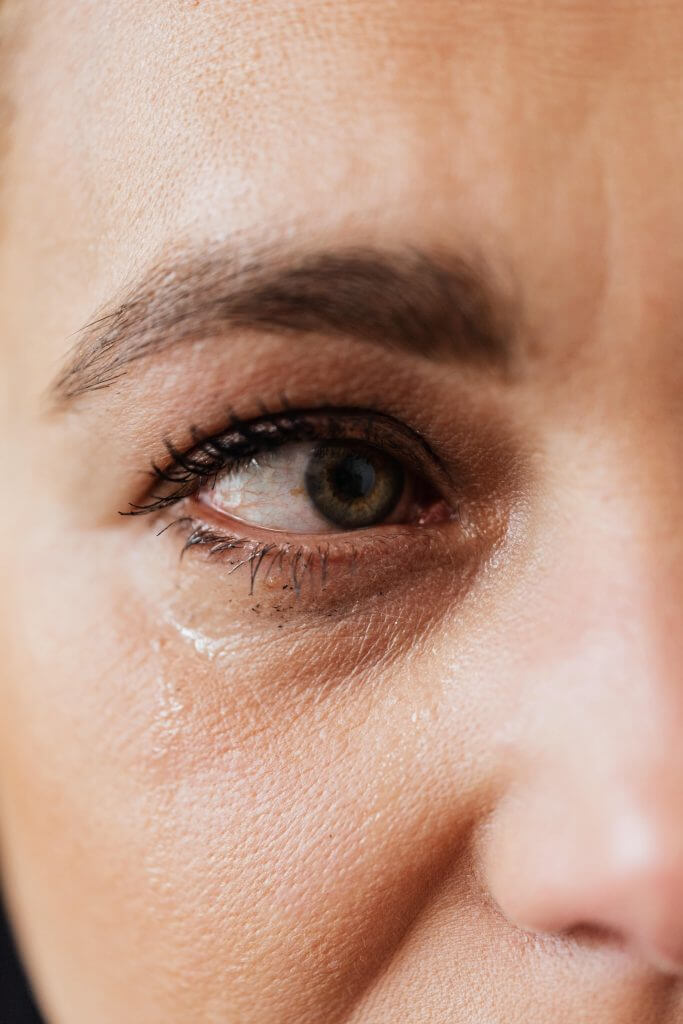
Hair Loss and Prematurely Gray Hair
Each individual hair follicle perpetually traverses through three stages[1]: (1) growth (anagen), (2) involution (catagen), and (3) rest (telogen). Hair loss due to stress, telogen effluvium, results from the early entry of hair to the telogen phase. As result, the hair growth lies dormant and falls off after 2-3 months. When hair follicles are in the telogen phase, the melanin (the pigment which determines our hair color) will also remain stagnant. The hair slowly loses its color and eventually greys out.
Obesity or Severe Weight Loss
Depression causes the reward system for eating to go out of order leading to over or under-eating. Cortisol is also linked to insulin resistance. This plus insomnia/hypersomnia associated depression leads to obesity or severe weight loss.
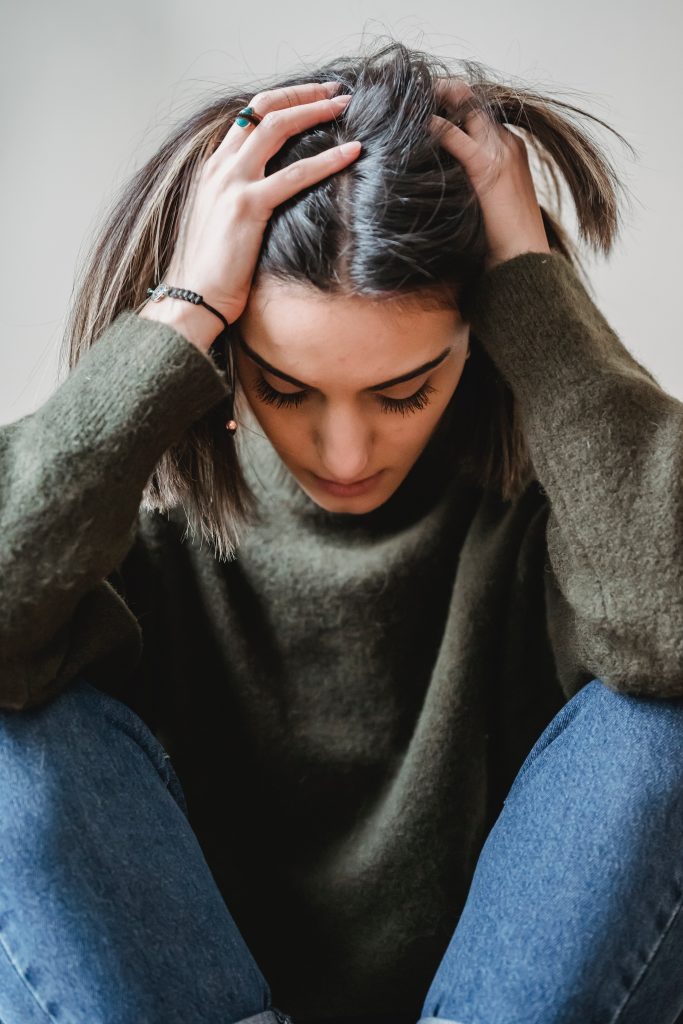
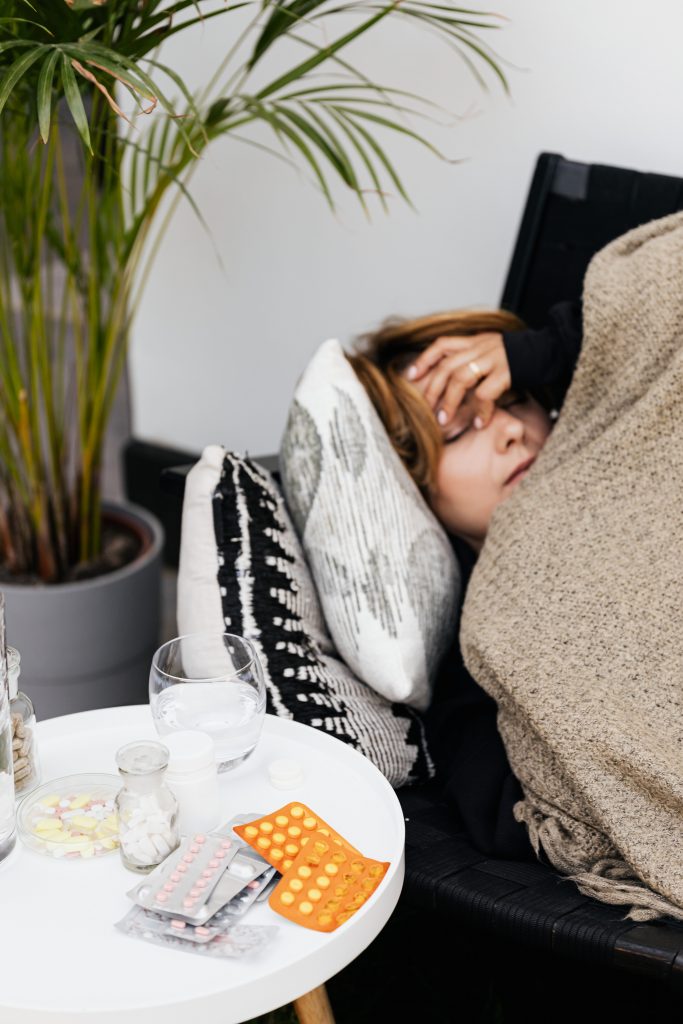
How to Relieve Depression?
Medical Care
Individuals with depression shouldn’t feel guilty for filling low or for loss of interest, it’s not their fault. As we have seen, it’s the result of the imbalance of neurochemicals in our body. Thus, they shouldn’t be ashamed to seek help. Contacting their physician or visiting a psychiatrist will help them end the gloomiest nights. Depending on the severity and functional impairment, anti-depressant will be provided with the objective of symptom remission, not just symptom reduction. Psychotherapy and counseling will also be provided. [1] Accumulating evidence shows that these therapies are very much effective.
In addition to the support from health professionals, the following methods help to relieve depression
Plan Out Your Day
It’s really difficult for depressed people to carry out their normal daily activities. But, it is better to get into the routine. This will help to get back on track and also achieving those goals you set will bring a sense of wellbeing.
Even if nothing seems fun anymore, engage in activities that have brought joy to you previously. Also, push yourself to do something different. Trying something new alters the level of dopamine, which is associated with pleasure.
Talking to close family members and friends about what they are going through will also decrease the burden.

Work Out
Exercise increases the level of endogenous endorphin, making us feel better and well. It also rewires our brain into a positive loop.
It’s hard by itself to get out of bed when you depressed. But, the exercise shouldn’t be heavy weight lifting or running marathons, walking a few miles will help.
Healthy Diet
Adjusting the diet also helps fight depression indirectly. Try your best to eat a healthy and balanced diet that will help you control your weight and improve your self-esteem.
Try to avoid alcohol and other drugs
Practice Sleep Hygiene
Not getting enough sleep or too much sleep when you are depressed is another challenge. So, it’s better to follow a routine each night. Consider your bed a place only for sleep. Avoid using your phone, and try to keep away from bright lights because they can hinder the production of melanin, a hormone that facilitates sleep. And instead of making falling asleep your goal, focus on relaxation.
VOIBON TIPS
To tackle depression, improve your coping mechanism. Try to develop routine that include fun activities and new habits. Eat a healthy and balanced diet, avoid smoking and alcohol, work out and try to get enough restorative sleep. And seek medical support.
Reference:
[1] Chirita, Vasile, and Ilinca Untu. “Kaplan and Sadock’s synopsis of psychiatry: behavioural sciences/clinical psychiatry.” Bulletin of Integrative Psychiatry 22.1 (2016): 119-123.
[2] Han, Laura KM, et al. “Epigenetic aging in major depressive disorder.” American Journal of Psychiatry 175.8 (2018): 774-782
[3] Epel, Elissa S et al. “Accelerated telomere shortening in response to life stress.” Proceedings of the National Academy of Sciences of the United States of America vol. 101,49 (2004): 17312-5. doi:10.1073/pnas.0407162101

